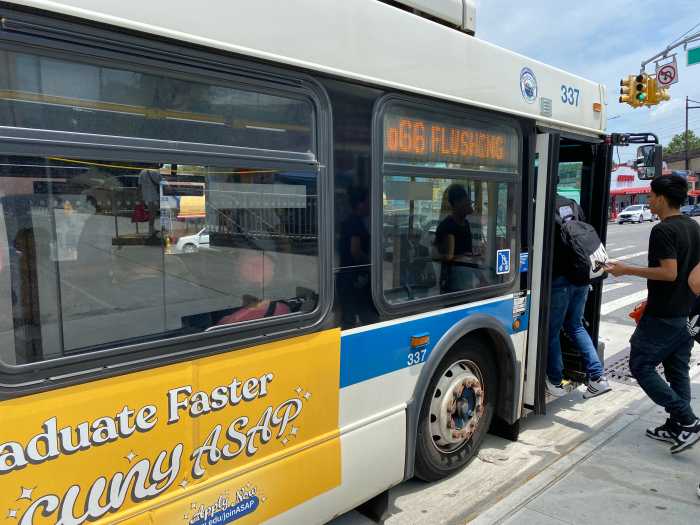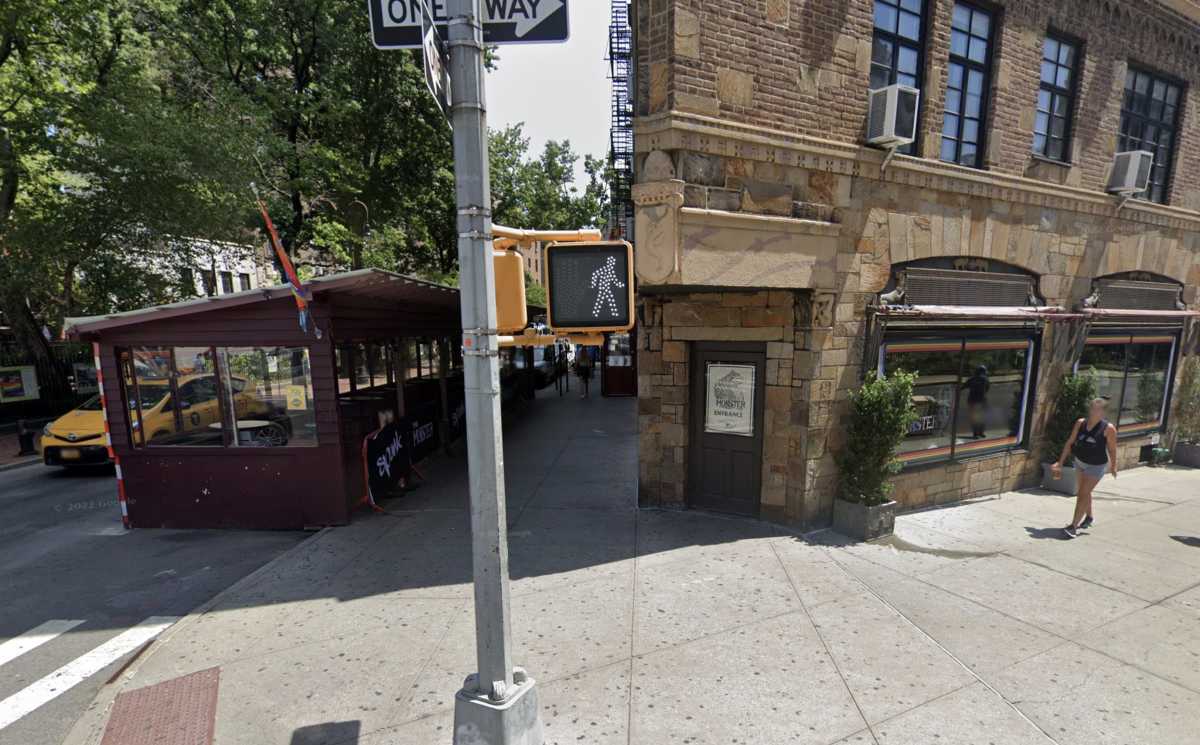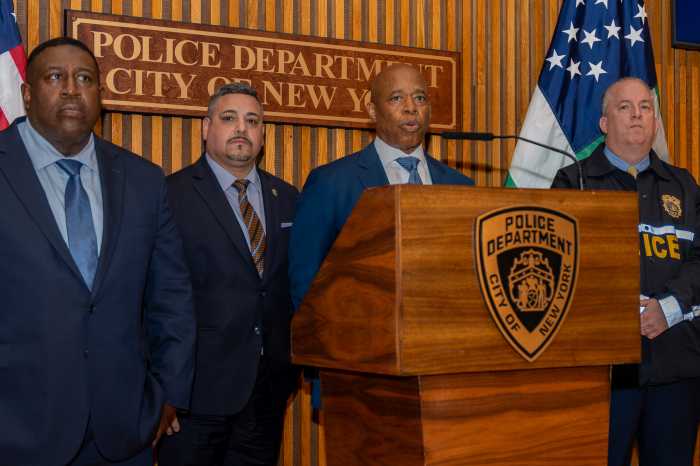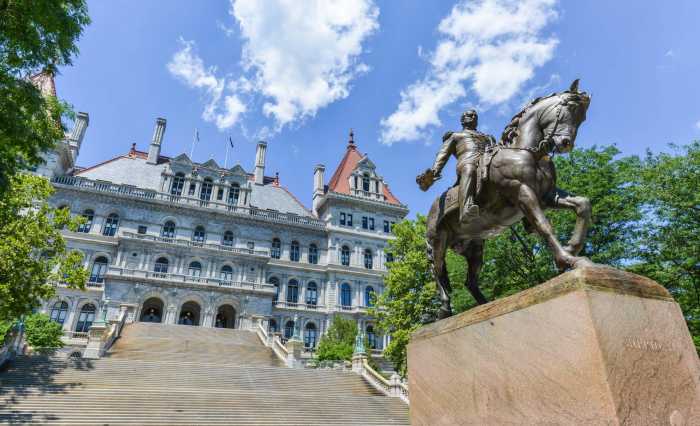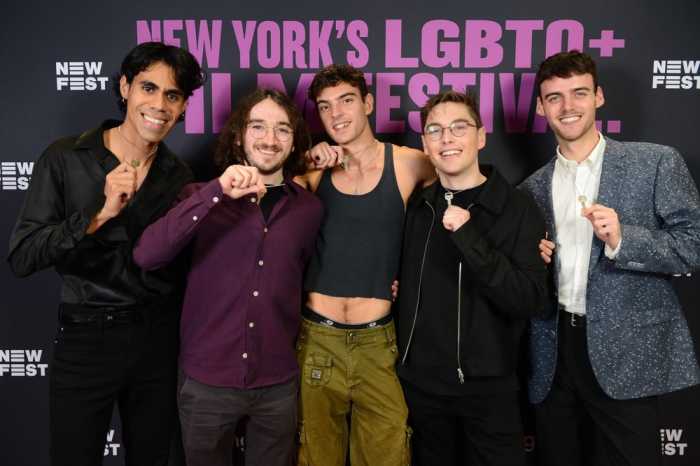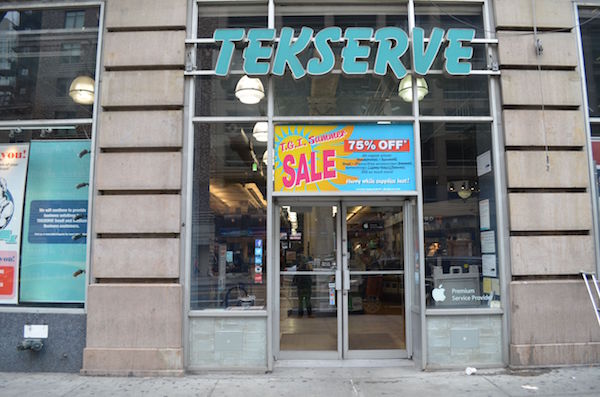
BY ALEX ELLEFSON | Most places just have a clearance sale when they go out of business. But Tekserve, the quirky Apple repair shop that has been part of the fabric of Chelsea for almost three decades, will offload a trove of antique treasures after its retail store closes next week.
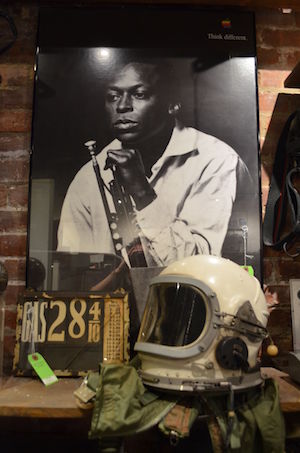
Auctioneers are cataloging more than 600 items — including an original 1984 Macintosh computer signed by Apple co-founder Steve Wozniak — to be sold to the highest bidder on Aug. 23. Tekserve’s collection also includes oddball artifacts like a 1970s high-altitude helmet used by a MiG fighter pilot, a more than 300-million-year-old fossil, scores of early cameras and radios, as well as the store’s beloved 1950s Coca-Cola machine.
Tekserve co-founder Dick Demenus, who has been stockpiling old gadgets since he used to pick up discarded radios on his way home from school, said he wants to sell the collection so people can continue enjoying the items’ historical value.
“When I look at some of these things, I see the genius that went into it. You can see what people were working with at the time and how one thing builds on another,” he said. “I would rather it go to other people who find it interesting than have it sit in storage.”
In June, Tekserve announced that their retail store would close on Aug. 15. The company, a precursor to the now ubiquitous Apple stores, operated out of various locations on the same W. 23rd St. block, between Sixth and Seventh Aves., since it opened in 1987. However, the increasingly crowded retail market, as well as a rent hike when their lease expires this year, made running Tekserve’s brick-and-mortar store unsustainable, said the company’s chief executive, Jerry Gepner.
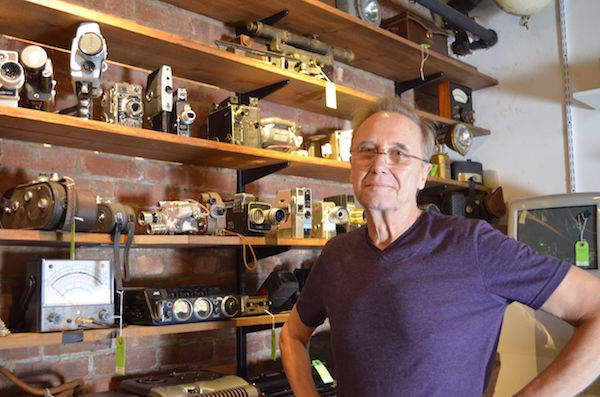
“In today’s world, no one is stunned that a small, local retailer is having a hard time,” Gepner noted, while emphasizing that Tekserve is not going out of business. He said its corporate sales and IT consulting divisions are thriving and will continue to operate. But the face of the company, the retail and repair store that became a Mecca for many of New York’s earliest Mac users, could not survive competition from larger businesses — such as the six Apple Stores now in Manhattan, the Best Buy across the street, or online retailers like Amazon.
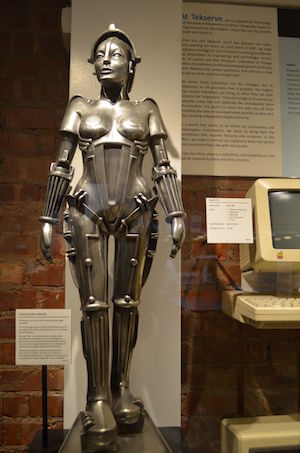
When Demenus and his business partner, David Lerner, started repairing Macs in a loft space down the street from Tekserve’s current location, interest in personal computers was just taking off. The two met while working at WBAI — a left-leaning, listener-supported radio station — and later teamed up to start an electronic engineering business that built audio equipment for museums and the New York Public Library.
“Along the way, we started using this thing called a personal computer. And we fell in love with Mac instantly,” Demenus said. “The ease of use, the graphics, and the overall user interface was compatible with what we wanted to do.”
Their experience manufacturing electronics provided them with the expertise to fix their computers, and eventually other members of the burgeoning Mac community started asking for repairs.
“There was this tight-knit, grassroots community and I think our reputation just sort of grew organically because we did a good job,” Demenus said.
The fledgling operation spun into Tekserve. The company started selling Apple products and outgrew several other locations, all on the same block, before settling into its current space in 2002.
David Cohen, a longtime customer who works for the Department of Education, said he used to travel from Brooklyn during the mid-90s to buy Apple products and get repairs done at Tekserve.
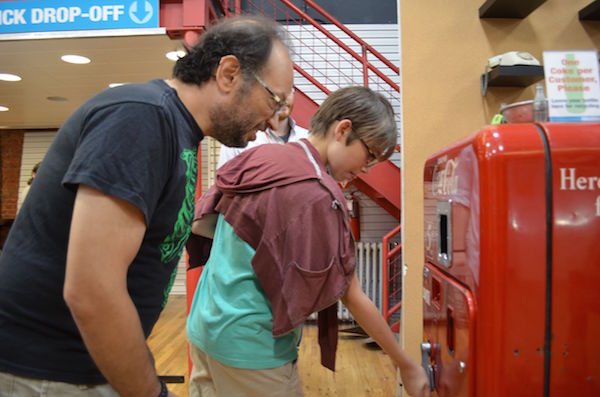
“They were the only place to go in New York City. I think the only other place I knew of was in Long Island,” he recalled. “The service was phenomenal. This is where I learned to swap out RAM, because if you needed them to do a five-minute job like that, they would just do it for free.”
Over the years, Tekserve has acted as hub for all kinds of activities: regularly partnering with the Lower East Side Ecology Center for e-waste collection events since 2003, as well as hosting free information seminars and other programs for its community of die-hard Apple fans. It’s also been spotlighted in pop culture — appearing in television shows like “Law & Order” and “Sex and the City.”
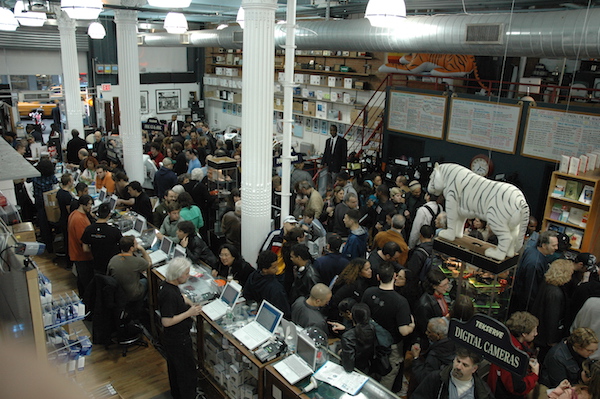
The cache of vintage electronics, celebrating the evolution of technology, grew as the company matured. The original Macintosh computer, which a staffer asked Wozniak to sign when the Apple co-founder came out of an interview at WNYC, is part of a store exhibit for Apple computers called the “Mac Museum.”
“Unlike, say, an Apple Store, where everything is new and there is no reference to the old, I wanted this to be a place of history and wonder,” Demenus said of the Tekserve collection.
However, now that the retail store is the latest Chelsea mainstay to give way to the creep of name-brand businesses, those antique electronics are coming off the shelves. Roland Auctions, the company hired to sell off Tekserve’s collection, has its employees sorting through hundreds items in a brick-walled room underneath the sales floor. Some of the items, like posters from Apple’s iconic “Think Different” campaign, start taking bids for as little as $20, while the store’s classic Coca-Cola vending machine hits the market for $500.
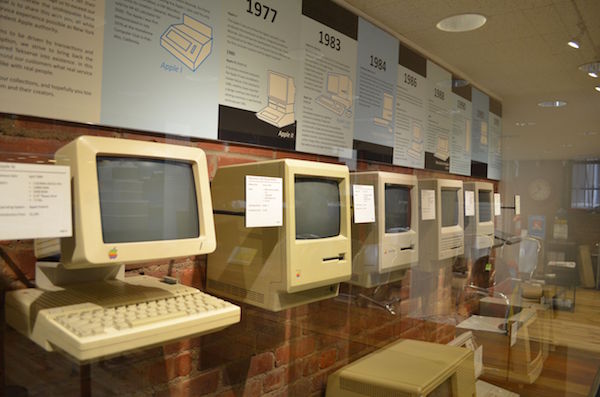
Demenus said they plan to auction off the “Mac Museum,” which includes the computer signed by Wozniak, as one item so it can be purchased and preserved by an institution or private collector.
“The individual pieces are not extraordinary. You can get them on eBay,” Demenus explained. “But together, they tell a story about the history of Macintosh.”
Tekserve will open for a preview of the auction items on Sat., Aug. 20, from 11am to 6pm and Mon., Aug. 22, from 9am until 6pm. The auction will take place in the store on Tues., Aug. 23, at 11am. Bids can also be placed online or by phone during the auction. For more information, and to view the catalogue, which is still being updated, visit rolandsantiques.com.
“This is a chance for people to walk away with a little piece of Tekserve,” Demenus said.



